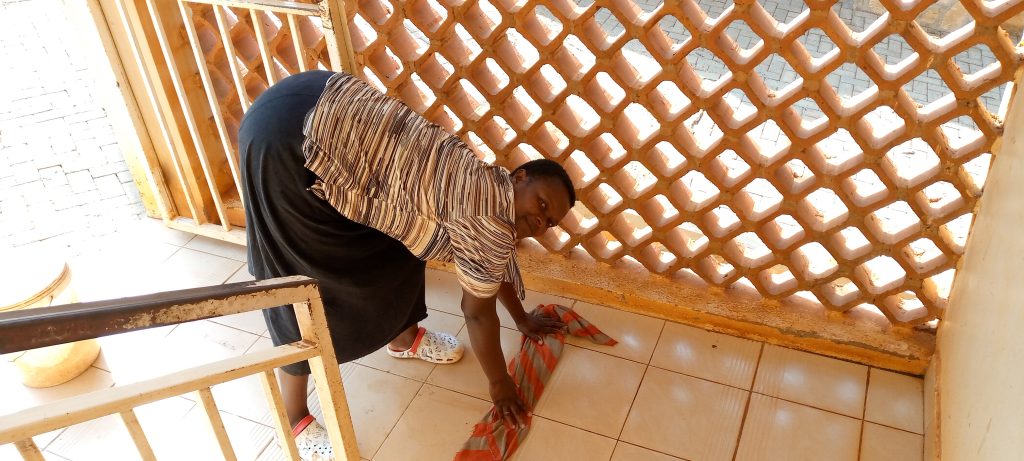By Asenath were and Laura Cenge
Humans cannot exist in isolation. They rely on the community and those who care about them to survive. Uganda Christian University (UCU) houses over 3,000 students a semester. The students require accommodations and food throughout their time at school. The business community around the university reaps a lot of dividends during that time.
Tinah Nanyonjjo, a fresh food vendor near UCU, acknowledges that it is a busy season during the semester. “We basically work because of the students,” said Nanyonjjo. She makes more money when the students are on campus, but her profits plummet when they leave.
“Because students are my biggest supporters, when they’re around, I make money; when they’re not around, my income flow is reduced, and without them, I lose a lot of money.” Nanyonjjo commented.
Nanyonjjo can make around Sh200,000-Sh300,000 per day when the students are present, but when they go on vacation, her profits drop to around Sh100,000-Sh150,000 per day.
In fact, some of these people become unemployed whenever the UCU students get a holiday. Most break off too and wait for the students to return. Therefore, one may ask, “How do they survive without money in such an economy?”

Brian Balijwaha, a manicurist and pedicurist in Buguju, said they start saving as soon as the semester begins so that when it is done, they have money to survive on for about two weeks and in the festive season when there will be no student customers to rely on.
However, after spending the money they saved, they are frequently left with no capital to continue with the business, forcing them to borrow capital in order to reopen their businesses, and the cycle continues.
“Us who do business are seasonal people; now, like the last festive season, there were no customers, so we had to close shop on December 25, 2022, until after the new year. We therefore have to use what we have saved to get us through the 2-3 weeks the students are always off. Balijwaha said.
More so, the money made does not only cater for their wellbeing, that is, buying food, but also for bigger responsibilities like paying school fees for their children; thus, for some trying to make ends meet, they are bound to suffer without the UCU students.
Betty Nanyonga, a single mother of six, is one of the members of the UCU community who benefits from her work as a caretaker at Little Angels, an affiliated girls hostel. She not only cleans but also earns money by washing clothes for the student.
Nanyonga said that the money she makes is spent on paying school fees and paying rent; by the time the semester ends, she has nothing, so she ends up needing another side hustle to continue supporting the family.
“We invest all of the money we receive in our children for school fees and rent; as a result, by the end of the semester, we have nothing left to survive and must look for something else to do as parents to meet our needs.” She said
Aside from those selling outside UCU having trouble making money when students are off, this also affects those within its gates. Whenever the students break off for holidays, most shops within the school are also forced to stop because there are no customers to serve.
Brighton Musinguzi, from the Juice Center at UCU, attests to this. To him, the only way to cope with this is to gradually reduce what he produces when the university says we are finally closing for the holiday.
In such moments, he is left relying on what he has saved up throughout the semester, which puts him in trouble when the new semester starts since he has to borrow money to continue with the business.
“When students are not around, we continue with the business but make very little to avoid losses, but as soon as the university closes, I also stop and go home, sit down, and wait for the new semester.” He said.
Due to these disturbances, Musinguzi plans to start another business to supplement the juice and ice cream he already has.


